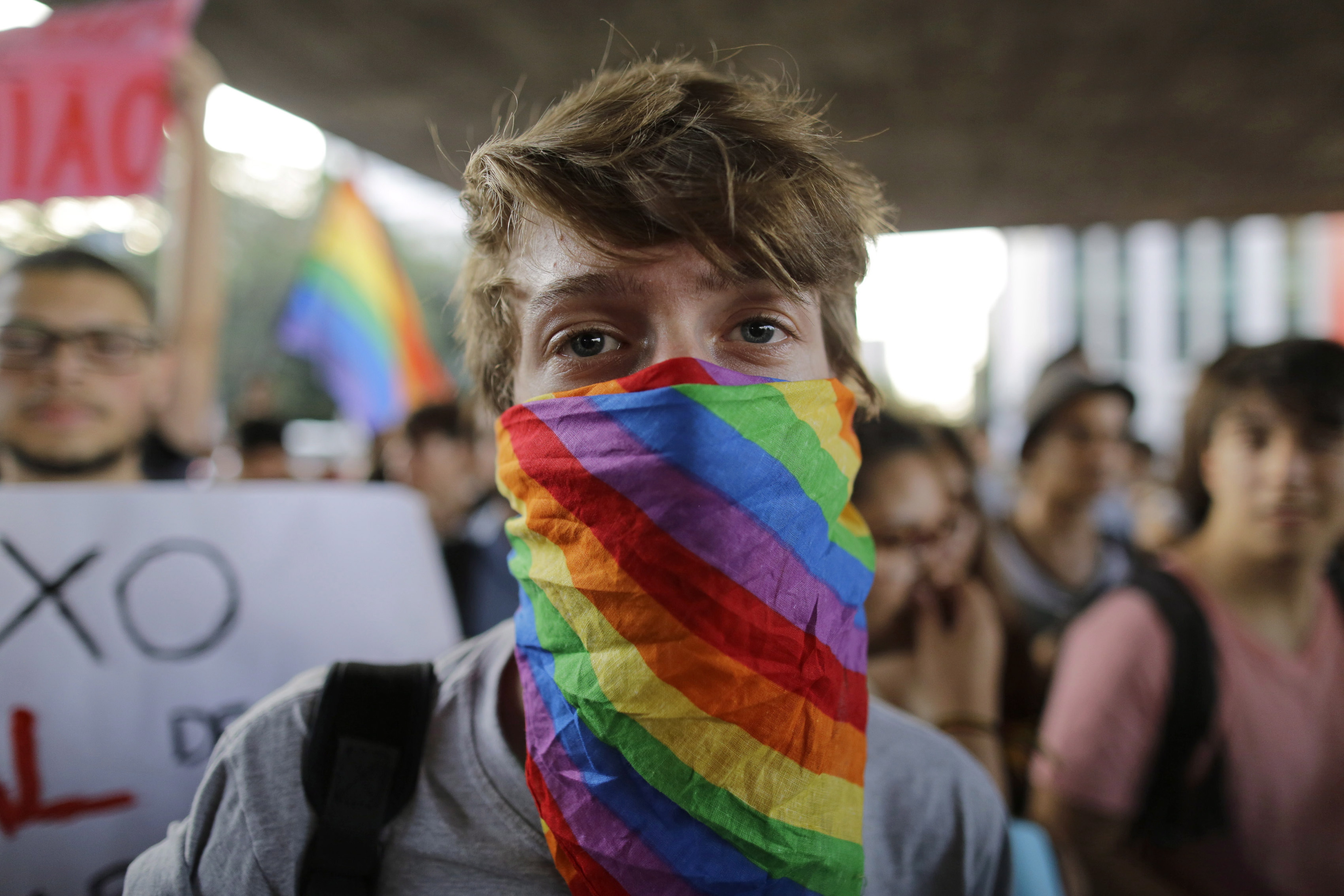Why Canadians Should Pay Attention to Brazil’s War on ‘Gender Ideology’

Credit to Author: Thomas Iglesias Trombetta| Date: Mon, 04 Feb 2019 18:07:18 +0000
Brazil’s newly-elected president Jair Bolsonaro, who already has quite the track record of homophobia and transphobia, is delivering on his promises to fight “gender ideology.”
On New Year’s Day, Bolsonaro erased LGBTQ+ issues from the agenda of the country’s human rights ministry. Minister Damares Alves, responsible for the portfolio, announced the change as if she’d just walked out of The Handmaid’s Tale. The former evangelical pastor proclaimed the country is now facing “a new era” where “boys wear blue and girls wear pink.”
This rise of ultra-conservative governments is not limited to Latin America. Alex Da Costa, education professor at the University of Alberta, explains: “you have in Europe massive far-right extremist nationalist rallies that you haven’t seen in decades.” Da Costa adds to the list leaders like Narendra Modi in India, the Philippines’ Duterte, Trump, and with his party’s recent merge with the socially-conservative Wildrose, potentially Jason Kenney in Alberta.
While the comparison of Bolsonaro may seem quite distant from a Canadian government under Liberal Prime Minister Justin Trudeau, Canada may find itself closer to the erasure of gender and sexual minorities than it expects. In fact, some provinces are already showing signs of following a reactionary conservative approach. Seeing how quickly Brazil has rolled back queer people’s rights should set off alarms in seemingly progressive countries.
As a queer man, born and raised in Brazil, I saw the fast progression of threats to LGBTQ+ people turn from a distant possibility to a frightening reality. I felt afraid for friends, family, and my ability to ever return to my home-country.
Looking at Doug Ford’s rise in Ontario, and the United Conservative Party’s threats to queer and trans youth in Alberta, it is clear Canadians should be paying attention to Bolsonaro. Not only to act in solidarity and allyship, but also to protect the existence of queer, trans, and Two-Spirit people on Turtle Island.
Since the rise of Bolsonaro as a presidential hopeful, Brazil’s LGBTQ+ community has been cautious and fearful, wondering if it would follow suit in populist reactionary movements that are threatening queer and trans rights across the globe. What is particularly troubling is the new government’s focus on ending “gender ideology,” which supposedly endangers the sanctity of traditional Brazilian families.
In the lead up to Brazil’s election, the number of hate crimes against queer and trans folk increased and LGBTQ+ couples started announcing rushed engagements in fear of a possible overturn on same-sex marriage. Only 48 hours after taking office, Bolsonaro’s government removed materials about STI prevention for trans men from its Ministry of Health page. Jean Wyllys, Brazil’s only gay congressman, announced on January 24 that he will not be returning to Brazil to complete his third term due to death threats to him and his family, which have worsened substantially after Bolsonaro took power.
We should not be surprised that vilifying any educational initiatives that normalize the existence of queer and trans youth increases violence. A dangerous possibility in a country with literally the worst track record against LGBTQ+ people.
“This is a far right tool in a lot of different places. What they do is they take terminology from the left, they distort it […] to bash leftist movements,” says Da Costa. As an example, Da Costa says Brazil’s right wing has recast “social justice warriors” as a Marxist threat, not unlike how Canadian figures like Jordan Peterson frame inclusion efforts as destructive forces.
Arguably, the discourse around gender ideology represents not only a setback for LGBTQ+ protections, but it also prohibits responsible dialogue. Estefania Cortes-Vargas, who is a queer Latin American NDP MLA for the Strathcona-Sherwood Park riding in Alberta, says “as soon as you mention anything of LGBTQ, it’s like ‘gender politics’… It is used to invalidate any concerns along those lines.”
The employment of these strategies becomes clear among certain conservative groups in Alberta (such as Parents for Choice in Education and The Justice Centre for Constitutional Freedoms) which act under the premise of protecting children’s rights. Strategically employing fear mongering narratives, they fight so that queer and trans youth in Alberta can’t access washrooms that align with their gender identity, form or join gay-straight alliances without parents’ consent, and learn inclusive evidence-based sexual health. These groups count on support from Alberta’s UCP party, which has a longstanding history of attacks on the LGBTQ2S+ community, including one former member who compared pride flags to swastikas.
Doug Ford’s attempt to prohibit kids from learning evidence-based sexual health has led to backlash from groups advocating for more modern material. Jason Kenney, although attempting to separate his UCP party in Alberta from hateful socially-conservative rhetoric, still has not successfully reached queer and trans Albertans. Member Cortes-Vargas says what’s at stake under a UCP government are “things that protect the discrimination of LGBTQ people.”
Da Costa adds that due to racist discourses around immigration, “we might see a rise in more xenophobic sentiment among people and the UCP will go after some of the policies that the NDP has implemented in the education system, so the protection for GSAs and students’ anonymity.”
If more intolerant governments are elected to power across Canada, and the UCP continues to join forces with socially conservative groups who spout this hateful rhetoric, we may find ourselves silenced by our own fight over gender ideology. The same narrative, while already on the rise in Alberta, must still find governmental legitimacy if it is to become more threatening.
And while Canada may not follow the same footsteps as Brazil, it is paramount that we fight for queer and trans lives now.
Sign up for the VICE Canada Newsletter to get the best of VICE Canada delivered to your inbox.